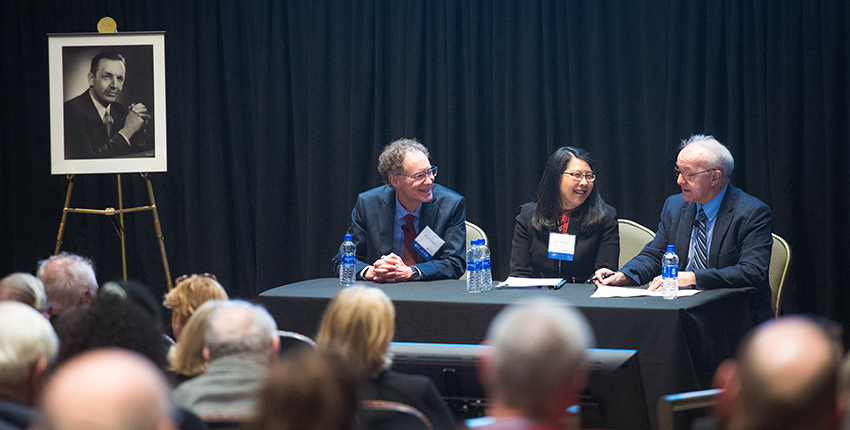Nature Knows and Psionic Success
God provides
From Life Span to Health Span

From left: Keynote speakers Bruce Yankner and Sharon Inouye discuss the science of healthy aging with HMS Dean George Q. Daley. The easel bears a portrait of symposium namesake Hollis Albright. Image: Gretchen Ertl In 1919, the average life expectancy for people born in the U.S. was about 56 years. Today, that has risen to almost 79 years. Older populations in particular are growing. The National Center for Health Statistics reports that 65-year-olds can expect to live another 19 years on average, five more than in 1950. As baby boomers age, the number of U.S. adults over 65 is expected to more than double by 2060, outnumbering children for the first time, according to the Population Reference Bureau. As progress on multiple fronts has made it possible for many people to live longer, interest has grown in how to age well: preserving physical and mental health to maximize quality of life in the elder years. “At medical school, we were told that our aim should be to help our patients die young as late as possible,” surgeon and Harvard Medical School alumna Tenley Albright quipped at the 2019 Hollis L. Albright, MD ’31 Symposium . During the forum, entitled “Healthy Longevity and the Science of Brain Health,” researchers highlighted a selection of projects that are uncovering fundamental mechanisms of both healthy aging and age-related conditions. Tenley and brother Nile Albright established the annual symposium in 2001 in honor of their father, an HMS surgeon who dedicated his life to patient care and student mentorship. Individual and societal challenges surrounding the aging brain and the aging U.S. demographic are “coming at us like a juggernaut,” said HMS Dean George Q. Daley, the Caroline Shields Walker Professor of Medicine, at the March 28 event in the School’s New Research Building. “Understanding […]
Click here to view full article
